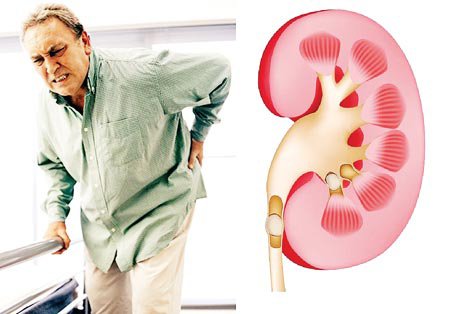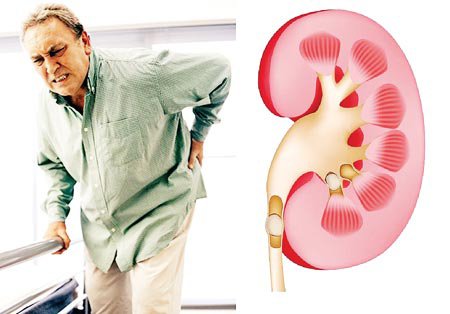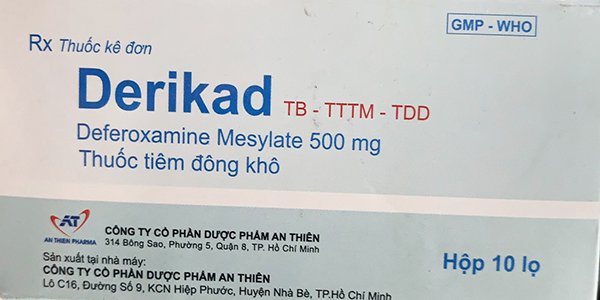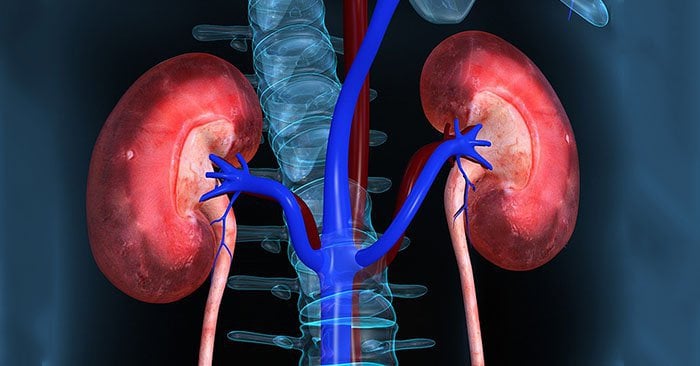Decreased urine output: Causes, treatment, and prevention
This is an automatically translated article.
Oliguria can be caused by dehydration, infection, trauma, urinary obstruction, and medications. This is an emergency condition, it is necessary to replenish water and electrolytes and bring the patient to the hospital for treatment to minimize the risk of serious kidney complications.
1. What is decreased urine output?
Decreased urine output is technically called oliguria . It is called oliguria when the urine output is less than 400ml/day.
The amount of urine in the bladder is less than 50ml/day is considered anuria.
2. Causes of oliguria
There are many potential causes of oliguria from simple to complex diseases. Specifically:
2.1. Dehydration Dehydration is the most common cause of decreased urine output. Usually, dehydration occurs with diarrhea, vomiting or some illness.
2.2. Infection and trauma Infection and trauma are less typical causes of oliguria. They can cause the body to go into shock, reducing blood flow to the vital organs of the body. Shock is a condition that requires immediate medical attention.
2.3. Urinary tract obstruction

Hội chứng tắc nghẽn đường tiết niệu
Urinary tract obstruction occurs when urine cannot leave the kidney, affecting one or both kidneys and often leading to decreased urine output.
Depending on how fast the blockage occurs, it can cause other symptoms, such as:
Body aches Nausea, vomiting Swelling Fever 2.4. Medications Some medications can cause a decrease in urine output including:
Nonsteroidal anti-inflammatory drugs (NSAIDs) High blood pressure medications such as ACE inhibitors The antibiotic gentamicin If the medication reduces urine output, you You should tell your doctor to change the medicine or adjust the dose more suitable.
Never change or stop taking a medication without consulting your doctor first.
3. When is oliguria severe?

Bạn bị vô niệu có thể do đường tiết niệu bị tắc nghẽn
You should seek emergency medical attention if you feel you may be in shock from an infection or serious injury; An enlarged prostate or another cause blocks the urinary tract. A blocked urinary tract can cause anuria and serious kidney damage if treated promptly.
Call your doctor at once if you experience a combined decrease in urine output:
Dizziness Rapid pulse Lightheadedness
4. Diagnosis of oliguria
Important information that needs to be extracted to diagnose oliguria includes:
Amount of urine during the day Sudden urination Whether it gets worse over time Does Drinking a lot of water increase urine output Medications or herbal medicine being used History of kidney or bladder disease In addition to asking about the disease, tests will also be ordered to confirm the diagnosis such as:
Amount of urine during the day Sudden urination Whether it gets worse over time Does Drinking a lot of water increase urine output Medications or herbal medicine being used History of kidney or bladder disease In addition to asking about the disease, tests will also be ordered to confirm the diagnosis such as:

Xét nghiệm nước tiểu giúp chẩn đoán thiểu niệu
Urine test Blood test CT scan Abdominal ultrasound Kidney scan
5. Treatment of oliguria
The treatment of oliguria will depend on the cause. An intravenous drip may be prescribed to quickly rehydrate the body or dialysis to help remove toxins until the kidneys can function normally again.
Use electrolyte supplements to replenish lost fluids and prevent oliguria.
6. Prognosis of treatment of oliguria
The outlook for someone with oliguria depends on the cause. If left untreated, decreased urine output can cause complications such as:

Nếu không được điều trị thiểu niệu có thể gây ra các biến chứng như suy tim
Hypertension Heart failure Anemia Platelet dysfunction Gastrointestinal problems Most cases require treatment. Talk to your doctor as soon as you have oliguria to develop the best treatment plan for you.
7. Prevent oliguria
The most common cause of oliguria is dehydration. You can avoid dehydration by making sure you stay hydrated.
Make sure to drink extra water when you have fever, diarrhea. Use electrolyte supplements to replace lost levels.
Urinary incontinence can be caused by many causes, depending on the severity and manifestations of the disease, patients need to go to medical facilities soon for examination and treatment. Complications can become dangerous if not controlled and treated promptly.
Vinmec International General Hospital is the address for examination, treatment and prevention of diseases, including Urology. When performing the examination process at Vinmec, customers will be welcomed and used modern facilities and equipment along with perfect medical services under the guidance and advice of experts. Good doctors, well-trained both at home and abroad.
Please dial HOTLINE for more information or register for an appointment HERE. Download MyVinmec app to make appointments faster and to manage your bookings easily.
Reference source: healthline.com
This article is written for readers from Sài Gòn, Hà Nội, Hồ Chí Minh, Phú Quốc, Nha Trang, Hạ Long, Hải Phòng, Đà Nẵng.





